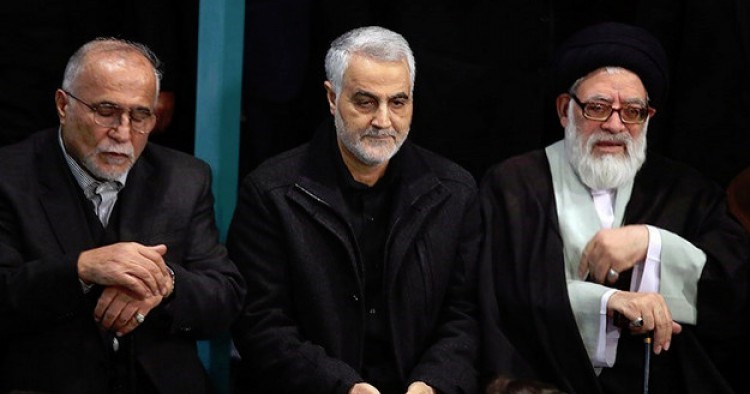Iran’s Quds Force Commander Qassem Suleimani attended the funeral of Ayatollah Akbar Hashemi Rafsanjani and praised the former Iranian president’s anti-American and anti-Israeli sentiments and positions.
“Mr. Hashemi remained the same from the outset until the end… However, Mr. Hashemi sometimes had certain tactics in different eras; or Mr. Hashemi was both anti-Arrogance [United States] and anti-Zionism [Israel],” said Suleimani, the head of the external operations of the Islamic Revolution Guards Corps (IRGC) who is designated as a terrorist by the United States for supporting militancy in Afghanistan and the Middle East.
Suleimani is right. Rafsanjani was arguably Iran’s most adept politician and one of the most influential leaders since the 1979 Islamic Revolution. But while Rafsanjani was portraying a softer image of the Islamic Republic to the world, he over the past 38 years had been an integral part of Iran’s theocratic regime that oppresses its citizens and plays a destabilizing role in the region. The former president is said to have been a driving force behind Iran’s controversial nuclear program. Indeed, he once encouraged Islamic states to develop nuclear weapons and argued that Iran and the Muslim world would have the strategic depth to withstand any retaliation if it used an atomic bomb against Israel. "If a day comes when the world of Islam is duly equipped with the arms Israel has in possession, the strategy of colonialism would face a stalemate because application of an atomic bomb would not leave anything in Israel but the same thing would just produce damages in the Muslim world," he said at a Friday prayer in Tehran.
The Middle East Institute (MEI) is an independent, non-partisan, non-for-profit, educational organization. It does not engage in advocacy and its scholars’ opinions are their own. MEI welcomes financial donations, but retains sole editorial control over its work and its publications reflect only the authors’ views. For a listing of MEI donors, please click here.













